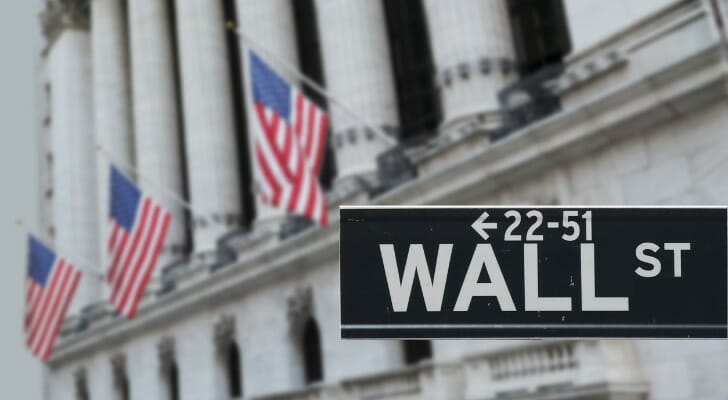Did you know that it’s possible to earn a profit in the stock market even when share prices are falling, or in the commodities market when prices drop? Typically, we think of the classic “buy low, sell high” strategy, but you can reverse this approach and still achieve gains. Two popular methods for profiting in a downturn are through futures contracts and options. Futures contracts lock in an obligation to buy or sell at a set price in the future, whereas options give you the choice to make a move if it’s in your favor, providing greater flexibility in market timing. If you’re thinking of incorporating futures vs options into your portfolio, you could consider working with a financial advisor.
What Is a Futures Contract?
A futures contract is a financial product in which you agree to either buy or sell an underlying asset at a specific price and date.
You make a profit if this contract guarantees you a better price than the market’s when it expires, i.e., if the contract allows you to buy the product for less than it’s worth, or sell it for more than it’s worth. You take a loss if your contract’s price is worse than the current market price.
How a Futures Contract Works
For example, you might enter the following futures contract:
- Buy 100 bushels of corn for $3.70 on Jan. 1.
On Jan. 1, the person on the other end of this contract will have to sell 100 bushels of corn to you for $3.70 per bushel. If the price of corn is higher than your contract price on Jan. 1, then you’ll profit by purchasing the commodity for less than it’s worth.
If the price of corn has fallen below $3.70, you’ll have to buy 100 bushels of corn for more than their market price, essentially locking in a loss.
There are two types of futures contracts: call and put.
- Call Futures – A call contract requires you to buy the underlying asset.
- Put Futures – A put contract requires you to sell the underlying asset.
Where a call contract (like our example above) profits if the price has gone up, a put contract profits if the price has gone down. Say you enter the following contract:
- Sell 100 bushels of corn for $3.70 on Jan. 1.
On Jan. 1, you’ll be required to acquire 100 bushels of corn at market price, then sell them for $3.70 per bushel. If the price of corn is less than $3.70 you’ll make a profit, selling the corn for more than it’s worth. If the price is more than $3.70, you’ll take a loss.
A futures contract can be resolved in two ways. In a cash settlement, the two traders agree to exchange just the value of what the contract is worth. No actual goods trade hands. So, instead of having to buy or sell bushels of corn in our examples above, you would just collect or pay the difference between your contract’s value and the current market prices. In a physical settlement, traders trade the physical goods. You would literally buy 100 bushels of corn and provide an address at which to accept delivery.
What Is An Option Contract?

An option contract is structured similarly to a futures contract, with put options and call options, with one key difference: With options, you agree to trade an underlying asset at a given price and date.
You can resolve this through a cash settlement or a physical settlement, allowing both parties to decide if they’re interested in purely financial speculation or if they’re actually in the market for raw materials. You can also enter either a call or put position depending on whether you think the asset’s price will rise or fall.
How an Options Contract Works
With an options contract, as the name suggests, it’s optional. When the contract expires, you can decide whether to follow through with it or pass on your option.
If you pass, nothing happens. The contract expires unfulfilled; you’re only out the money you spent to arrange the contract. If you execute the contract, you can either trade physical goods or exchange payments.
Where a futures contract creates a bilateral obligation (both parties in the contract have to fulfill their end of the bargain), an option contract creates a unilateral obligation (only the person who created the contract is necessarily bound by it).
Options vs. Futures: How to Choose
Options can be a useful financial instrument. You exercise the contract if doing so makes you money. You walk away from every contract that doesn’t. In fact, they specifically eliminate the single greatest risk of trading futures: real, and potentially unlimited, losses.
When a futures contract expires unprofitably, you actually end up owing money. Take our example above. Say you buy a call contract for 100,000 bushels of corn at $3.70 for Jan. 1 – a modest contract by the standards of professional traders.
On Jan. 1 the price of corn has fallen to $3.40. The difference between your contract’s value and market value is 100,000 times $0.30, or $30,000. You would actually owe that $30,000. This is different from traditional investments such as stocks and bonds, in which you can never lose more than the value of your initial investment.
Options protect you from that risk of loss. If our example above was an option contract, on Jan. 1 you would see that you held an unprofitable position and simply allow the contract to expire without exercising it.
However, this makes options contracts significantly more expensive than futures.
Most futures contracts only require you to stake some money in your brokerage account to prove that you can cover potential losses. Otherwise the actual price of the contract is little more than a minimal transaction cost. Options contracts, however, charge what’s called a “premium.” This is a price that the trader charges to sell you the contract.
Contracts more likely to expire profitably charge higher premiums. If the contract expires unprofitably, you lose this money. If you make money off the option, your profits are the difference between the premiums and what the contract paid.
Ultimately, the difference between futures and options boils down to this: Futures are high risk, high reward. Options mitigate your risk down to a known loss. You can never lose more than the contract’s premiums, but your gains are always mitigated by that premium price, as well.
Bottom Line

Futures are contracts in which you agree to buy or sell an underlying asset for a given price at a given date. When the contract expires you either make money or lose money, depending on whether the contract expires profitably. Options also are a contract to buy and sell an underlying asset for a given price at a given date, but they give you the option to walk away if the position turns out to be unprofitable.
Tips for Using Options and Futures
- Options and futures trading can be complex, so consider working with a financial advisor if you’d like to integrate them into your investing plan. SmartAsset’s free tool matches you with financial advisors in your area in five minutes. If you’re ready to be matched with local advisors who will help you achieve your financial goals, get started now.
- Use this asset allocation tool as you weigh your risk tolerance against various combinations of large-cap, mid-cap and small-cap shares.
Photo credit: ©iStock.com/Igor Kutyaev, ©iStock.com/alexsl, ©iStock.com/Laurence Dutton
